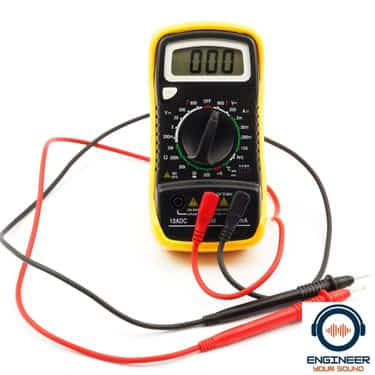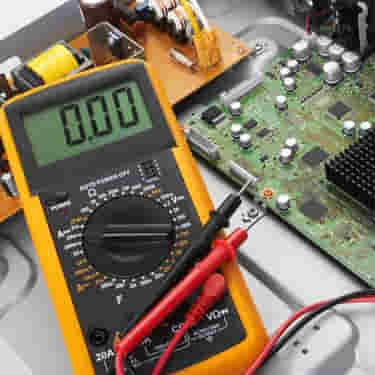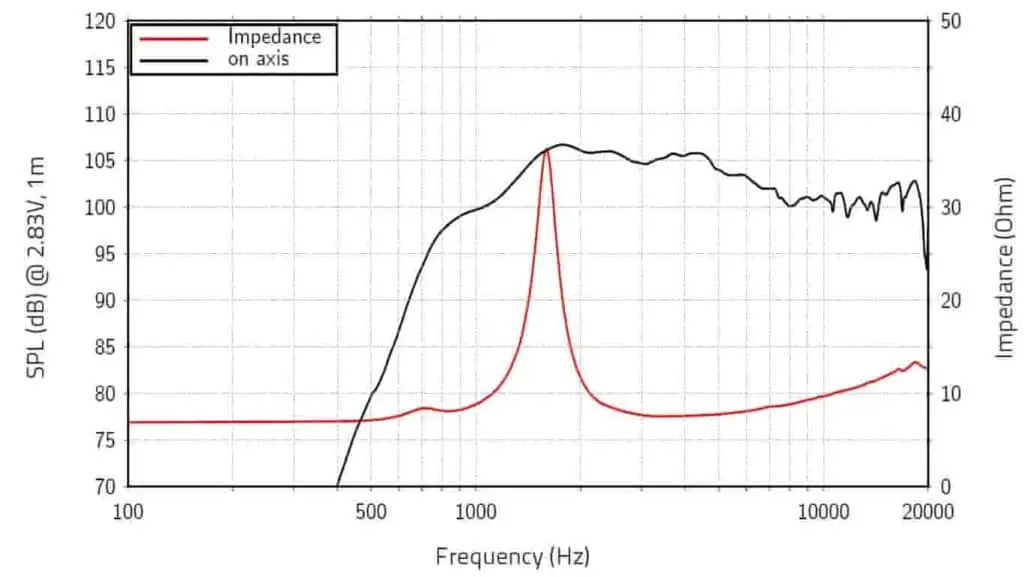Speaker resistance (Re) and Impedance (Z) are two important factors that affect the performance of speakers and are parameters that are often specified when selecting speakers.
Understanding these concepts can help you pick out the best speakers for your home audio setup and give you a much better understanding of how your speakers work.
The difference between speaker Re and impedance is that Re denotes the DC resistance of a speaker’s voice coil, whereas impedance is the AC resistance of a speaker. Impedance is not a fixed value and varies with frequency.
- Re is the DC resistance of a speaker.
- Impedance is the AC resistance of a speaker. It is frequency dependent.
In this article, I will explain what speaker Re is, how it differs from impedance and which value is most important from an amplifier matching perspective, covering:
- What is speaker Re?
- What is speaker impedance?
- Is speaker impedance the same as resistance?
- How do I measure speaker Re?
- How do I measure speaker impedance?
- Why is speaker impedance important?
- Is Re or impedance more important when amplifier matching?

What Is Speaker Re?
Speaker Re is also known as the DC resistance of a speaker. We measure the Re of a speaker in ohms, and it is the total resistance of the speaker’s voice coil.
When you measure Re, you are measuring the resistance of the voice coil wire in response to a DC input.
Speaker Re is specified as one simple value, measured in ohms.
What Is Speaker Impedance?
Speaker impedance is the electrical resistance of the speaker when exposed to an AC signal.
We measure impedance in ohms and it is a measure of how much opposition a speaker offers the flow of current from an amplifier, which provides an AC signal.
Unlike speaker Re, impedance changes with frequency. Therefore, on speaker specification sheets, we do not have a singular specified impedance value, but a “rated”, nominal or averaged impedance value.
When we apply an input signal to a speaker, we are not applying a simple DC input but an AC (alternating current) input.
The input to our speakers is musical in nature, with a frequency element. The input signal fed to your speaker is constantly changing with varying frequencies and is an AC signal.
Speaker impedance is the resistance of the speaker to an AC signal.

Learn Electronics For Free!
Earn A Professional Qualification
Is Speaker Impedance The Same As Resistance?
No, speaker impedance is not the same as resistance. Speaker resistance (Re) is the total resistance of the speaker’s voice coil when exposed to a DC input. It is a single value and doesn’t change with frequency.
Impedance, on the other hand, is the electrical resistance of the speaker when exposed to an AC signal. Impedance is not a single value, but changes with frequency.
Although related, speaker impedance and speaker resistance are two different parameters.
How Do I Measure Speaker Re?
To measure speaker Re, you will need an ohmmeter. An ohmmeter is a device that measures electrical resistance in ohms (Ω).
Set the meter to its lowest resistance range and connect it to the speaker’s terminals (positive lead on the positive terminal, negative lead on the negative terminal) to get a reading of its DC resistance or Speaker Re.
The value should be within 10-20% of what is specified for that specific speaker model.
How Do I Measure Speaker Impedance?
It is possible to estimate your speaker impedance by measuring your speaker Re.
As previously mentioned, to measure speaker Re you will need an ohmmeter. Connect the speaker’s terminals (positive lead on the positive terminal and negative lead on the negative terminal) to get a reading of the Re of your speaker.
From this, you can estimate your impedance value, which should be higher, within 10-20% of the Re value.
Here is a great video which shows how to manually estimate your speaker impedance.
For a more accurate measurement, you will need a signal generator. As mentioned, impedance is frequency dependent and will change as the input frequency of your signal changes.
Many speaker manufacturers will publish this impedance data as a curve, so you can see how your speaker impedance changes with frequency.

To learn more about comprehensive speaker impedance measurement and how to read a speaker impedance curve, I have covered this topic in greater depth in this article:
Why Is Speaker Impedance Important?
Speaker Impedance is important because it affects the power level and frequency response of a speaker. When speakers are connected to an amplifier, the amount of power sent to them depends on their impedance value.
If the impedance of the speaker is too low in comparison to what the amplifier can handle, then the amplifier will output more power than it was designed for, resulting in distorted sound or even worse – a damaged amplifier which blows.
Is Re or Impedance More Important For My Amplifier?
Impedance is the most important factor when connecting a speaker to an amplifier. Impedance is the electrical resistance of a speaker when exposed to an AC signal, and it affects the power level and frequency response sent to your speakers.
It is really important to ensure that your speaker impedance is not less than the specified impedance range of your speaker. This can result in too much power being supplied by your amplifier which can result in a blown amp.
To understand the relationship between speaker impedance and amplifier rating, this is a fantastic and brilliantly explained video.
Final Thoughts
In conclusion, speaker Re and Impedance are both important factors to consider when connecting a speaker to an amplifier.
The Re resistance of a speaker is a measure of the speaker’s resistance to DC input and the Impedance of a speaker is a measure of the speaker’s reactance to AC input.
It’s important that you ensure the impedance of your speakers falls within the range your amp is designed for or else it could lead to distorted sound or even worse – a damaged amplifier which blows.

